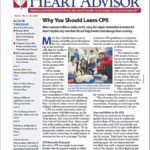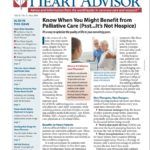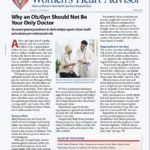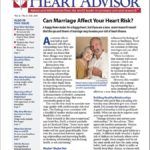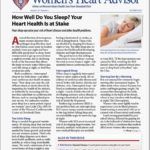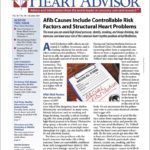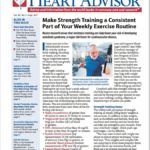Download the Full June 2018 Issue PDF
CPR is a simple intervention that anyone can master with little training, yet the magnitude of its effect is incomparable, says Venu Menon, MD, Director of the Coronary Care Unit at Cleveland Clinic. Many people who suffer sudden cardiac death are in the prime of life and otherwise healthy. Its an unexpected, random event that any one of us could witness at any time. It could happen to someone we love or to a stranger, he says.
Download the Full May 2018 Issue PDF
Advanced heart failure is one reason some patients are referred to palliative care. These patients often experience distressing symptoms that increase in number and severity as the condition progresses.
Download the Full WHA April 2018 Issue PDF
After a girl ages out of a pediatricians care, her next doctor is likely to be a gynecologist. Unless she has a chronic health condition or suffers a health scare, this may be the only doctor she sees for many years. But young women would be wise to establish a relationship with a general practitioner, who will examine them for cardiovascular risk factors and address these issues early.
Download the Full April 2018 Issue PDF
A heart attack occurs when a blood clot shuts off blood flow through an artery on the surface of the heart muscle. When this happens, the area of heart muscle nourished by this artery is starved of oxygen. Unless blood flow is restored in a timely manner, muscle tissue will die.
Download the Full March 2018 Issue PDF
If you have stable angina-meaning your chest pain occurs predictably with physical exertion and disappears with rest-your doctor may recommend a percutaneous coronary intervention (PCI, or balloon angioplasty and stenting) to relieve your symptoms.
Download the Full February 2018 Issue PDF
Dont forget to cultivate good habits as a couple. A different study revealed a higher risk of diabetes in husbands whose wives gained weight. Since couples tend to eat the same meals and have the same eating habits, both people are likely to suffer or benefit from their choices, so choose well.
Download the Full January 2018 Issue PDF
Anticoagulants-more widely known as blood thinners-are used in patients with cardiovascular disease. Blood thinners dont actually thin the blood; they interfere with the ability of a protein called fibrinogen that causes blood to clot. This makes them useful for preventing blood clots from forming in the arteries or veins, where they could cause a heart attack or stroke or blood clots in the legs or lungs.
Download the Full December 2017 Issue PDF
Tis the season for office parties, cocktail parties, reunions, family gatherings and other occasions where alcohol freely flows. When youre enjoying yourself, its easy to drink more alcohol than you intended. Never mind the hangover that youll regret tomorrow: Consuming too much alcohol in a single occasion can trigger an irregular heartbeat.
Download the Full November 2017 Issue PDF
If youve never experienced a heart attack, you may rightly assume that when one does strike youll feel the first signs in your chest. Thats because chest pain or discomfort are among the most common heart attack symptoms. However, its quite possible to have a heart attack and never have any chest pain. One study of more than
Download the Full WHA October 2017 Issue PDF
Around the time of menopause, many women discover they no longer sleep like they used to. Hot flashes cause many to awaken multiple times per night and have difficultly going back to sleep. Some women need to get up several times a night to urinate, due to declining levels of the hormone that allows the body to retain water. Others just cant fall asleep at night, or find they awaken too early.
Download the Full October 2017 Issue PDF
Atrial fibrillation (afib) affects an estimated 2.7 million Americans, and is a leading risk factor for stroke and other cardiovascular problems. When a heart is in afib, the upper chambers (atria) beat chaotically and out of synch with the lower chambers (ventricles). This can cause blood to pool in the heart and form a blood clot. It can also put extra strain on the heart, putting you at a higher risk of heart failure.
Download The Full September 2017 Issue PDF
Strength training should be a regular part of your exercise regimen. In a recent study, researchers found that people who did strength training for up to an hour a week reduced their risk of developing metabolic syndrome by as much as 29 percent. Metabolic syndrome is a collection of risk factors that raise your risk of developing cardiovascular disease. You are considered to have metabolic syndrome if you have three of the following risk factors:


